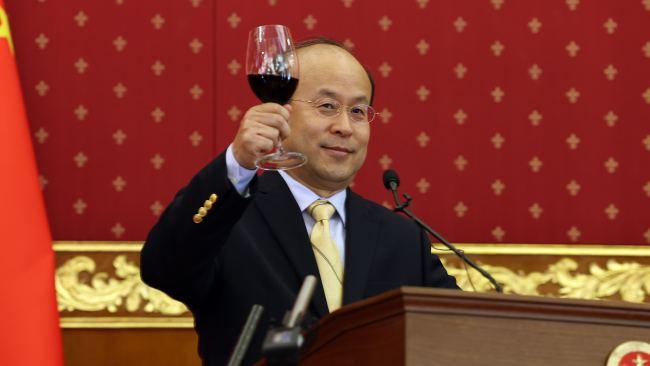The Australian government has expressed its satisfaction with China’s decision to lift tariffs on Australian wine, allowing it to re-enter the Chinese market. This move comes just ahead of the Easter long weekend and marks a significant development for the Australian wine industry. The decision is expected to provide a major boost to Australian wine exports and strengthen trade relations between the two countries.
The Australian wine industry received a significant boost as China announced the cessation of its punitive tariffs on the product, more than three years after their imposition. The decision, declared by China’s Commerce Ministry late on Thursday before the Easter long weekend, was met with enthusiasm from Australian officials.
Effective March 29, China will eliminate duties on Australian bottled wine, according to a statement from the Australian government. Prime Minister Anthony Albanese, alongside Foreign Minister Penny Wong, Trade Minister Don Farrell, and Agriculture Minister Murray Watt, welcomed the development, emphasizing the mutual benefits for Australian producers and Chinese consumers.
The joint statement underscored the measured approach of the Albanese Labor Government, which mirrored the successful strategy employed to eliminate tariffs on Australian barley. The punitive measures, instituted in 2020, rendered Australian wine exports to China economically unviable, despite being valued at $1.1 billion in 2019.
The tariffs, reaching up to 200 percent, were introduced by Beijing in November 2020, ostensibly in response to the Morrison government’s call for an inquiry into the origins of the COVID-19 pandemic. These measures affected approximately $20 billion worth of Australian exports across various sectors.
While relief is palpable in the wine industry, sanctions persist on Australian lobster products. Nevertheless, there’s optimism as Australian officials have engaged in constructive dialogues with Chinese counterparts, fostering strong bilateral relations.
The Albanese government reiterated its commitment to cooperation with China while asserting Australia’s national interests, a stance that led to fruitful outcomes on barley and wine. Efforts to eliminate all remaining trade barriers affecting Australian exports will persist, aligned with the country’s trade diversification strategy.
In tandem with the decision on wine tariffs, Australia is withdrawing its dispute with China at the World Trade Organization. China’s Commerce Ministry had hinted at tariff reassessment as early as November the previous year, with recent developments indicating a swift resolution.
The Australian wine industry, though relieved by the tariff removal, has endured significant setbacks over the past three years. Nonetheless, the decision marks a turning point, reigniting hope for businesses and fostering a conducive environment for trade relations between Australia and China.


